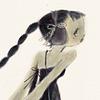You need to sign in or sign up before continuing.
Take a photo of a barcode or cover
Oh yeah people oh yeahhhhh!!!! A scathing riotly funny critique of modern culture through the lens of the soviet 90s. Stands up to any culture any time though. A short must read for everyone. Not just a lighthearted comedy though, under those layers you better recognize how real this shit is...THIS GAME HAS NO NAME
adventurous
dark
funny
reflective
medium-paced
challenging
dark
funny
mysterious
reflective
medium-paced
Plot or Character Driven:
N/A
Strong character development:
Complicated
Loveable characters:
No
Diverse cast of characters:
No
Flaws of characters a main focus:
Complicated
Мне понравилось, нормальная книга про нормального парня. Хоть повествование часто уходит в откровенную наркоманию (не люблю такое) и мало обоснованные и даже притянутые величественные темы, но заканчивается всё красиво и лирично. Приключение Вавилена по миру рекламы написали не самыми информативными, но интересными.
adventurous
challenging
funny
informative
reflective
slow-paced
Plot or Character Driven:
A mix
Strong character development:
Complicated
Loveable characters:
No
Diverse cast of characters:
No
Flaws of characters a main focus:
Yes
Where Reality Ends and Fiction Starts in Pelevin’s Novel Generation “P”
Reading Pelevin’s Generation “P” is like watching letsplay on the new game on youtube without a sound. You can just observe what the character does with some small understanding of what is going on. Nobody explains you anything and all you can do is to try to make educated guesses.
The main hero of the game - Vavilen Tatarsky is the collective image of people of 70s. Of those mystical times when criminals were romanticized, and people disappear faster than warm buns from a bakery in the morning. By the way, the advertisement for the bakery is the debut of Vavilen in the world of advertisement, to where he got after working on the criminal in a stand (kiosk). Owing to his literary education in university, Vavilen successfully goes up in his career path, changing three bosses on his way. From times to times, to stay inspired, he takes into mushrooms, some drugs and LSD, which help him to generate new creative ideas as well as to see some strange things as a goddess, speaking dog and even speak to the spirit of Che Guevara. By those drug trips, Vavilen travels into himself and the world, trying to understand all its mysteries.
The novel is structured in the way of the computer game. Our character starts from zero level, having only his university education as a tool. He also knows little about this world and what is happening around. Readers together with the character see things, read his thoughts and learn what protagonist learns with small portions, hoping to make sense from it later. As Vavilen promoted, we go to the next level with new problems and questions to answer. The novel leads a reader softly and slows through the reality of the world of the 90s with its cruelty, showing what is hidden around each corner: danger, deaths of unfortunate businessmen, criminals ruling the business and talking with police as equal, economic and social instability. However, it is not that tragic tour, or better to say it tries not to show it by the derision of character’s actions, silly advertisement lines, insults to those fans of cola. That all can hamper readers from the realization of how scary those times were, causing the older generation to nostalgy while making younger laughing but for both be confused. But, at the same time, such a “lovely” setting did not appear from nowhere. The setting consists from the real people who were killed in the attempt to make money and to become “New Russian”- rich and successful businessmen. From people who lost everything they believed in after the dance of the tanks. Therefore, it is important for us as well as for Vavilen Tatarsky to know where reality is and where there is only substitution of the reality known also as Simulacra.
The representative of people from generation “P” lives in four layers of realities. The first one is the internal of the character, external of the world outside, mythical of goddess Ishtar and god Enkidu, and the realm of advertisements. The reality of both internal and external worlds intervenes with the fiction of mythical one. The thing is that after some time the borders between them disappear, and to know where reality is, becomes impossible. By working in an advertisement company, Vavilen creates another layer of reality for all lost people who want to find some truth in advertised products. He starts from creating some fictional condition that emerges when you buy Sprite, Harley motorcycle, brand GAP and even donating to Christ. Tatarsky assures that consuming those things will make a person feel better about his current condition, thereby creating another reality consumers believe in. However, he does not stop there. From creating additional reality through promo videos, Tatarsky goes to work on Media Channel. There he first checks the advertisement scripts of others and then controls what other politicians will say by writing script to their 3-d models. By the way, it turns out that there are no politicians at all but only their 3-d models that are controlled by some higher authorities. Substitution of reality to the fictional one in the novel Generation “P” is similar to the Precession of Simulacra. Jean Baudrillard described this process in his philosophical treatise “Simulacra and Simulation” in 1981. According to Jean Baudrillard, the last couple of years people with the help of signs and symbols via media substituted the real things with the constructed perceptions of those things. In other words, we do not experience the things itself but the imitation of these things. The same is true with the politicians in the Generation “P”. Not knowing that politicians do not exist (but not for sure), people listen to their copies, words for those are created by people like Tatarsky, who can only assume what they could say or better: what other say they might say. The world of the Generation “P” is the brightest example of Simulacra.
Now, when you started to doubt the world you live in, or to be concrete, only one of its layers. I suggest you get even more confused and start playing the book-game Generation “P”.
Reading Pelevin’s Generation “P” is like watching letsplay on the new game on youtube without a sound. You can just observe what the character does with some small understanding of what is going on. Nobody explains you anything and all you can do is to try to make educated guesses.
The main hero of the game - Vavilen Tatarsky is the collective image of people of 70s. Of those mystical times when criminals were romanticized, and people disappear faster than warm buns from a bakery in the morning. By the way, the advertisement for the bakery is the debut of Vavilen in the world of advertisement, to where he got after working on the criminal in a stand (kiosk). Owing to his literary education in university, Vavilen successfully goes up in his career path, changing three bosses on his way. From times to times, to stay inspired, he takes into mushrooms, some drugs and LSD, which help him to generate new creative ideas as well as to see some strange things as a goddess, speaking dog and even speak to the spirit of Che Guevara. By those drug trips, Vavilen travels into himself and the world, trying to understand all its mysteries.
The novel is structured in the way of the computer game. Our character starts from zero level, having only his university education as a tool. He also knows little about this world and what is happening around. Readers together with the character see things, read his thoughts and learn what protagonist learns with small portions, hoping to make sense from it later. As Vavilen promoted, we go to the next level with new problems and questions to answer. The novel leads a reader softly and slows through the reality of the world of the 90s with its cruelty, showing what is hidden around each corner: danger, deaths of unfortunate businessmen, criminals ruling the business and talking with police as equal, economic and social instability. However, it is not that tragic tour, or better to say it tries not to show it by the derision of character’s actions, silly advertisement lines, insults to those fans of cola. That all can hamper readers from the realization of how scary those times were, causing the older generation to nostalgy while making younger laughing but for both be confused. But, at the same time, such a “lovely” setting did not appear from nowhere. The setting consists from the real people who were killed in the attempt to make money and to become “New Russian”- rich and successful businessmen. From people who lost everything they believed in after the dance of the tanks. Therefore, it is important for us as well as for Vavilen Tatarsky to know where reality is and where there is only substitution of the reality known also as Simulacra.
The representative of people from generation “P” lives in four layers of realities. The first one is the internal of the character, external of the world outside, mythical of goddess Ishtar and god Enkidu, and the realm of advertisements. The reality of both internal and external worlds intervenes with the fiction of mythical one. The thing is that after some time the borders between them disappear, and to know where reality is, becomes impossible. By working in an advertisement company, Vavilen creates another layer of reality for all lost people who want to find some truth in advertised products. He starts from creating some fictional condition that emerges when you buy Sprite, Harley motorcycle, brand GAP and even donating to Christ. Tatarsky assures that consuming those things will make a person feel better about his current condition, thereby creating another reality consumers believe in. However, he does not stop there. From creating additional reality through promo videos, Tatarsky goes to work on Media Channel. There he first checks the advertisement scripts of others and then controls what other politicians will say by writing script to their 3-d models. By the way, it turns out that there are no politicians at all but only their 3-d models that are controlled by some higher authorities. Substitution of reality to the fictional one in the novel Generation “P” is similar to the Precession of Simulacra. Jean Baudrillard described this process in his philosophical treatise “Simulacra and Simulation” in 1981. According to Jean Baudrillard, the last couple of years people with the help of signs and symbols via media substituted the real things with the constructed perceptions of those things. In other words, we do not experience the things itself but the imitation of these things. The same is true with the politicians in the Generation “P”. Not knowing that politicians do not exist (but not for sure), people listen to their copies, words for those are created by people like Tatarsky, who can only assume what they could say or better: what other say they might say. The world of the Generation “P” is the brightest example of Simulacra.
Now, when you started to doubt the world you live in, or to be concrete, only one of its layers. I suggest you get even more confused and start playing the book-game Generation “P”.
cool but cuckoo, would’ve preferred it as a short story
adventurous
funny
reflective
medium-paced
Plot or Character Driven:
A mix
Loveable characters:
Yes
Flaws of characters a main focus:
No







